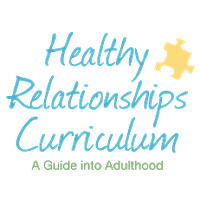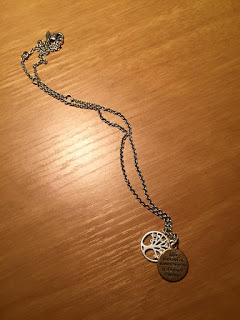Tomorrow is “the anniversary.” Seventeen years have passed.
To this day, I still remember each every moment that occurred on April 19, 2001 (and the entire weekend that followed). I remember wearing an orange polo shirt, khakis, brown suede boots and a matching jacket from Wilsons Leather where at the time, I worked as an assistant manager. I was due to report to my Century III store at 5pm that evening after Christian’s appointment with his endocrinologist and grabbing a quick bite to eat before dropping everyone off and heading to my shift.
This day by no means played out as it was “supposed to.” At the appointment, I was told that my son “wasn’t normal” and that something was “wrong … very wrong.”
The day didn’t go as it was “supposed to.”
Or … did it?
As promised, for the first time on The Caffeinated Advocate, I am sharing the excerpts from my 2008 speech delivered at a walk kickoff luncheon at Heinz Field in front of over 700 people.
***
Ralph Waldo Emerson tells us, “The definition of success — to laugh much; to win respect of intelligent persons and the affections of children; to earn the approbation of honest critics and endure the betrayal of false friends; to appreciate beauty; to find the best in others; to give one’s self; to leave the world a little better, whether by a healthy child, a garden patch, or a redeemed social condition; to have played and laughed with enthusiasm, and sung with exultation; to know even one life has breathed easier because you have lived — this is to have succeeded.”
Winning the affections of children, redeeming a social condition, finding the best in others, knowing one life breathed easier because we have lived. These are just some of the many successes of parents to children on the autism spectrum. We are warriors, drafted into an army for a fight for which we were not prepared. I was, and still am, one of those warriors – an “autism mom” as we in the autism community call ourselves. We have achieved great success in our personal journey amidst the autism spectrum, but it certainly did not come without a price.
In 2001, I, like many of you sitting in front of me, knew something wasn’t right with my child. He screamed for 14-16 hours a day, banged his head uncontrollably, did not play with other children (in fact, he ran in fear of them), inappropriately played with toys, wouldn’t eat more than five different foods, wore only certain clothes, and tantrummed worse than any child I had ever encountered.
“Call the CDU, no matter what your pediatrician says,” our endocrinologist told us at a checkup on April 19, 2001. “You have no time to waste. This isn’t ADHD. Something is wrong with this boy – very wrong.”
I never made it home that afternoon to place the phone call.
“Something is wrong.” Oh, how that dreaded phrase that so many of us have heard echoed in my head as we traveled to a local establishment to attempt to eat a meal. Christian was throwing himself onto the floor, screaming, crying, throwing utensils and kicking the high chair. Dinner was no use, I thought, so I attempted to pick Christian up to take him to the car. I didn’t want to disturb the other patrons, plus I was obviously frustrated and embarrassed by my son’s wild display. As I tried to carry him, he fell through my arms while shrieking and biting me.
As I placed him in the car, the manager of the restaurant ran outside after me.
“CHILD ABUSER!” she screamed.
“Excuse me? I’m trying to calm my son and not disturb your guests. She continued to scream at me – “You don’t deserve that child! You are a terrible mother!” I was in tears at this point and begged her to leave me alone.
Exhausted and saddened, I sat in the car while I played Christian’s Mickey Mouse tape for the umpteenth time. All of a sudden, the sounds of “This Old Man” were interrupted by a loud noise.
They were sirens.
The sirens came from three police cars who suddenly surrounded my vehicle. “Step out of the car and put your hands behind your back. Let’s GO!”
Before I could blink an eye, I was in handcuffs and my child was taken from my arms.
I was shoved into a jail cell and I wasn’t even given my rights. My parents pleaded my case, showing the officers that there was not a physical mark on Christian. Their pleas fell on deaf ears, as I was charged with terroristic threats (for raising my voice), endangering the welfare of a minor, and simple assault on my own son. I screamed for my son, hoping he could hear my voice and find comfort. They slammed the heavy steel door of the cell, and that was the last I heard my little boy’s cries.
A caseworker from Children, Youth and Families came in to inform me that I no longer had custody of my son. I begged them to send Christian home with my parents. They said no, since if I was released, I could return home to “hurt him.”
I was told I was a “threat to my son and a threat to society.”
Later than evening, I was transported to the county prison, where I was placed in a holding cell with drug abusers, prostitutes, and other like offenders. I curled up in a fetal position on the floor for hours, laying on a dirty, cold floor in a heap of tears. I was denied bail, and transferred to another cell.
Fast forward four days, I was released. Thanks to my family and friends, we discovered an incredible lawyer who, though expensive, got results quickly. She was extremely compassionate and worked wonders for our case.
At the very first child and family court hearing, I was told what I had prayed to hear:
“You are not the problem, Catherine. Your doctor has clearly not supported you. Something is wrong, very wrong, with your son. He has some sort of delay, I am sure. I hereby order a psychological evaluation two weeks from today.”
Thankfully, I discovered a psychologist who took us in for an appointment within one week. He and his colleague listened to our story, and were dumbfounded.
Within one hour of observation, Dr. Newman led me back to the room, and he and his caseworker both took me by each hand and said, “You are NOT the cause of your child’s problems. I am so sorry to tell you this, but your child has Pervasive Developmental Disorder.” “What?” I asked. “He’s going to be ok though, right? He’ll come out of this?”
Dr. Newman said gently, “Cathy, your son has a form of autism.”
***
This is where it all began.
Both Christian and I have accomplished feats that, seventeen years ago, I would have never imagined. At that time, I had little hope for either of us and I feared the future.
Since that day, we have continued to move mountains, we have defied odds, and though there have been many dips in our story there have also been moments of blinding bright light.
My son, who at one time could not speak beyond a babble of unintelligible speech, left a legacy at his school prior to graduation in 2016 when he said: “I want to be remembered as the kid who had autism, because no one knows how hard I fought to get here. Don’t ever let a disability hold you back. I want to give back to my community and continue to help others.” Though currently moving through more hurdles, he hasn’t given up. He never has. He is a self-advocate, and for that, my pride is simply immeasurable.
I have spent 15 years both personally and professionally supporting communities. I am humbled by each and every story shared with me by individuals and their families, as well as their educators, clinicians and supporters and my colleagues. I, in turn, will always be grounded knowing that because I share pieces of our story, others may pull strength and feel less alone. I don’t EVER want ANYONE to feel ALONE.
I am proud to give back what has so graciously been given to us. We are abundantly grateful. We can never, ever thank our beloved “village” nearly enough for the parts they have played along the way and for contributions we couldn’t possibly ever repay. We love you all more than words are able to adequately express.
Someday, Imprisoned No More will be released and a full history shall be told. Until then, we are a living, breathing book in progress.
As KDKA’s Larry Richert said following my speech a decade ago, “World, you had better watch out for this jailbird mom. She’s clearly not done yet.”
Not by a long shot, Larry. Not a chance.







